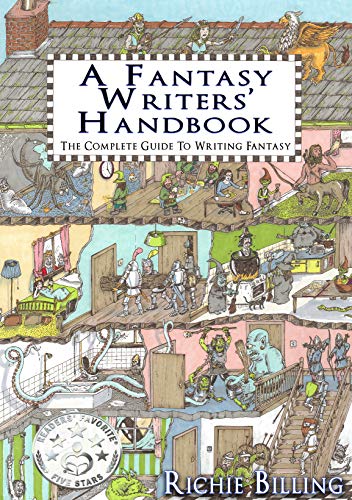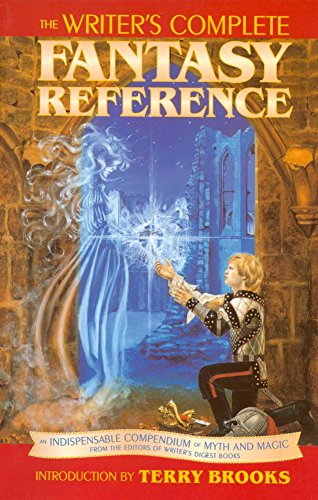Have you ever dreamed of dragons soaring through the sky or brave knights battling evil wizards? Fantasy stories transport us to magical worlds, and the writers who create them are like architects of imagination. But when you need a fantasy writer for a project, or just want to find your next favorite author, how do you choose?
It’s tough to pick the right fantasy writer. There are so many talented people out there! You might worry about finding someone who truly understands the magic you envision. Will they capture the epic feel? Can they create characters you’ll love? It’s a real challenge to sift through all the possibilities and find the perfect fit.
In this post, we’ll help you. We’ll explore what makes a great fantasy writer. You’ll learn how to spot authors who can build incredible worlds and tell unforgettable stories. By the end, you’ll feel more confident in finding the fantasy writer who’s just right for you.
Our Top 5 Fantasy Writers Recommendations at a Glance
Top 5 Fantasy Writers Detailed Reviews
1. A Fantasy Writers’ Handbook
Rating: 9.5/10
Unleash your inner storyteller with the A Fantasy Writers’ Handbook | The Guide To Writing Fantasy That Helps Writers Get Published. This book is your key to crafting magical worlds and unforgettable characters. It guides you through every step of building a fantasy story that readers will love. You’ll learn how to create unique magic systems, design epic quests, and develop characters that leap off the page. This handbook is designed to help aspiring authors turn their dreams into published books.
What We Like:
- Clear and easy-to-follow advice for new fantasy writers.
- Inspiring examples that spark creativity.
- Practical tips for world-building and plot development.
- Focus on strategies to help get your work published.
What Could Be Improved:
- More in-depth examples of published fantasy novels.
- Additional exercises for practicing specific writing techniques.
- A section on marketing your finished manuscript.
This handbook offers a solid foundation for anyone dreaming of writing fantasy. It’s a valuable tool for taking your writing from idea to reality.
2. Writing Fantasy & Science Fiction: How to Create Out-of-This-World Novels and Short Stories
Rating: 8.9/10
Ready to blast off into your own universe of imagination? Writing Fantasy & Science Fiction: How to Create Out-of-This-World Novels and Short Stories is your guide to building amazing worlds and unforgettable characters. This book helps you craft tales that will grab readers and never let go. It’s packed with tips for dreaming up unique magic systems, futuristic technology, and alien societies.
What We Like:
- It clearly explains how to build believable fantasy and sci-fi worlds.
- The book offers practical advice for developing compelling characters.
- It provides great ideas for creating exciting plots and conflicts.
- This used copy is in good condition, offering great value.
What Could Be Improved:
- Some readers might wish for more advanced techniques for seasoned writers.
- The examples provided, while helpful, could be more diverse in genre sub-categories.
This book is a fantastic resource for anyone eager to start writing their own genre-bending stories. Grab your copy and start creating your next bestseller!
3. Writer’s Complete Fantasy Reference
Rating: 9.4/10
Are you dreaming up epic worlds filled with magic, dragons, and brave heroes? The Writer’s Complete Fantasy Reference is your new best friend. This book from Writer’s Digest Books, published by ABIS BOOK, is packed with everything you need to build a fantastic fantasy story. It helps you create believable characters, design amazing settings, and even come up with unique magic systems. It’s a treasure trove of ideas for any fantasy writer, whether you’re just starting out or have been writing for years.
What We Like:
- It gives you tons of ideas for fantasy creatures and their habitats.
- The book offers helpful advice on creating compelling plot twists.
- You’ll find useful guides for developing different types of magic.
- It’s a comprehensive resource for world-building details.
- The information is presented in a clear and easy-to-understand way.
What Could Be Improved:
- Some sections could offer even more examples.
- A glossary of terms might be helpful for beginners.
- More visual aids like maps or illustrations would enhance the experience.
This reference book is an excellent tool for anyone who wants to write great fantasy stories. It truly helps bring your imagination to life on the page.
4. 500 FANTASY WRITING PROMPTS: Fantasy Story Ideas and Writing Prompts for Fiction Writers (Busy Writer Writing Prompts)
Rating: 8.9/10
Are you a fantasy writer struggling to find your next great idea? This book, “500 FANTASY WRITING PROMPTS: Fantasy Story Ideas and Writing Prompts for Fiction Writers (Busy Writer Writing Prompts),” is here to help! It offers a huge collection of prompts to spark your imagination. You’ll discover tons of new story concepts and writing challenges. This book is designed for writers who need quick inspiration to keep their stories moving forward. It’s packed with prompts that cover many different fantasy themes.
What We Like:
- A massive number of prompts means endless possibilities.
- The variety of ideas helps writers explore different fantasy subgenres.
- It’s an excellent tool for overcoming writer’s block.
- The prompts are easy to understand and use right away.
- It provides a great starting point for new fantasy stories.
What Could Be Improved:
- Some prompts might be too similar to each other.
- More detailed explanations for some prompts could be helpful.
- The book doesn’t offer examples of stories written from the prompts.
This book is a fantastic resource for any fantasy writer. It gives you the fuel you need to write amazing stories.
5. The Writer’s Map: An Atlas of Imaginary Lands
Rating: 8.7/10
Unleash your inner storyteller with “The Writer’s Map: An Atlas of Imaginary Lands.” This book is a treasure chest for anyone who loves to dream up new worlds. It provides a huge collection of maps from fantasy and science fiction. You’ll find everything from enchanted forests to futuristic cities. Each map sparks the imagination and helps you build detailed settings for your own stories. It’s a fantastic tool for writers, gamers, or anyone who enjoys exploring new places.
What We Like:
- Inspires creativity with a wide variety of unique maps.
- Helps writers visualize and detail their fictional worlds.
- Offers endless possibilities for story development and game settings.
- Beautifully illustrated and engaging to browse.
- A great conversation starter for fans of fantasy and sci-fi.
What Could Be Improved:
- More detailed descriptions for each map could be helpful.
- A digital version might be useful for some users.
- Could benefit from a section on map creation tips.
This atlas is an invaluable resource for anyone looking to build their own imaginative worlds. It’s a must-have for any creative soul.
Your Guide to Choosing the Best Tools for Fantasy Writing
So, you’re a fantasy writer! You weave tales of dragons, magic, and faraway lands. To bring these worlds to life, you need the right tools. This guide will help you pick the best ones for your creative journey.
1. Key Features to Look For
When you’re looking for writing tools, think about what helps you create your best stories.
-
Ease of Use:
The tool should be simple to understand and operate. You want to spend your time writing, not figuring out complicated buttons.
-
Organization Tools:
Fantasy worlds can be complex! Look for features that help you keep track of characters, places, and plot points. This could be notes, outlines, or character sheets.
-
Customization Options:
Every writer is different. Can you change the look, feel, or setup of the tool to match your style? This makes the writing process more enjoyable.
-
Collaboration Features (Optional):
If you work with others, see if the tool allows multiple people to work on a story together. This is great for co-authoring or getting feedback.
-
Backup and Syncing:
Your story is precious! Make sure your work is saved automatically and can be accessed from different devices. Losing your work is a writer’s nightmare.
2. Important Materials
What are these tools made of? For software, it’s about the technology. For physical items, it’s about what they’re made from.
-
Software:
This includes writing apps, note-taking programs, and outlining software. The “material” here is the code and design that makes them work. Good software is reliable and doesn’t crash.
-
Notebooks and Pens:
If you prefer to write by hand, look for sturdy notebooks with good quality paper. Pens should feel comfortable in your hand and write smoothly.
-
Hardware:
This could be your computer, tablet, or even a special keyboard. It needs to be fast enough to keep up with your ideas and comfortable for long writing sessions.
3. Factors That Improve or Reduce Quality
Some things make a writing tool great, while others can make it frustrating.
-
Improves Quality:
-
Intuitive Interface:
A clean and easy-to-navigate layout helps you focus on writing.
-
Reliable Performance:
The tool works smoothly without bugs or slowdowns.
-
Helpful Support:
If you have questions, is there a place to get answers quickly?
-
-
Reduces Quality:
-
Confusing Menus:
Too many options or hard-to-find features can slow you down.
-
Frequent Crashes:
Losing your work because the program stops working is terrible.
-
Lack of Updates:
Software that isn’t updated might have old features or security problems.
-
4. User Experience and Use Cases
How does the tool feel to use? And what can you do with it?
-
User Experience:
This is all about how it feels to use the tool. Does it make writing fun or feel like a chore? A good user experience keeps you motivated.
-
Use Cases:
-
Brainstorming New Ideas:
Use a mind-mapping tool or a simple notebook to jot down initial story sparks.
-
Outlining Your Plot:
Software with outlining features helps you structure your story from beginning to end.
-
Character Development:
Create detailed profiles for your heroes and villains.
-
World-Building:
Map out your fantasy lands, magic systems, and cultures.
-
Drafting Your Novel:
A distraction-free writing environment is key for getting words down.
-
Editing and Revising:
Tools that help you track changes or offer grammar suggestions are useful here.
-
Fantasy Writer’s FAQ
Q: What’s the best type of software for fantasy writers?
A: It depends on your needs! Many writers love programs like Scrivener for its organization features. Others prefer simple, distraction-free word processors like Google Docs or Microsoft Word.
Q: Should I use a physical notebook or digital notes?
A: Both are great! Some writers find that jotting ideas down by hand helps them remember better. Digital notes are easy to search and organize. Many writers use a combination of both.
Q: How important is it for writing software to have outlining tools?
A: Very important for many fantasy writers! Fantasy worlds have many moving parts, so an outline helps you keep track of everything and ensure your story makes sense.
Q: Can I use free tools for fantasy writing?
A: Absolutely! There are many excellent free writing tools available, like Google Docs, LibreOffice, and various note-taking apps. You can create amazing stories with free resources.
Q: What if I have a lot of characters in my story?
A: Look for writing software with character profile templates or note-taking features. This allows you to keep detailed information about each character in one place.
Q: How do I avoid distractions when writing fantasy?
A: Many writing apps offer a “focus mode” or “distraction-free mode.” This makes the screen look like a blank page with just your text. Turning off notifications on your computer also helps.
Q: Is it worth buying expensive writing software?
A: It can be, especially if it has features that significantly improve your workflow and organization. However, don’t feel pressured to buy expensive tools if free or cheaper options work well for you.
Q: How do I organize my world-building notes?
A: Use separate folders in a digital note-taking app or a dedicated notebook for different aspects of your world, like magic systems, geography, or cultures.
Q: What should I do if my writing tool is slow or crashes?
A: First, make sure your device has enough memory and is up-to-date. If it’s software, check for updates. If the problem continues, consider trying a different tool that runs more smoothly on your system.
Q: How can I make sure my writing is backed up?
A: Most modern writing software has automatic cloud saving. Regularly saving your work and making manual backups to an external drive or cloud storage is also a good habit.
In conclusion, every product has unique features and benefits. We hope this review helps you decide if it meets your needs. An informed choice ensures the best experience.
If you have any questions or feedback, please share them in the comments. Your input helps everyone. Thank you for reading.

Hi, I’m Tom Scalisi, and welcome to The Saw Blog! I started this blog to share my hands-on experience and insights about woodworking tools—especially saws and saw blades. Over the years, I’ve had the chance to work with a wide range of tools, and I’m here to help both professionals and hobbyists make informed decisions when it comes to selecting and using their equipment. Whether you’re looking for in-depth reviews, tips, or just advice on how to get the best performance out of your tools, you’ll find it here. I’m excited to be part of your woodworking journey!





